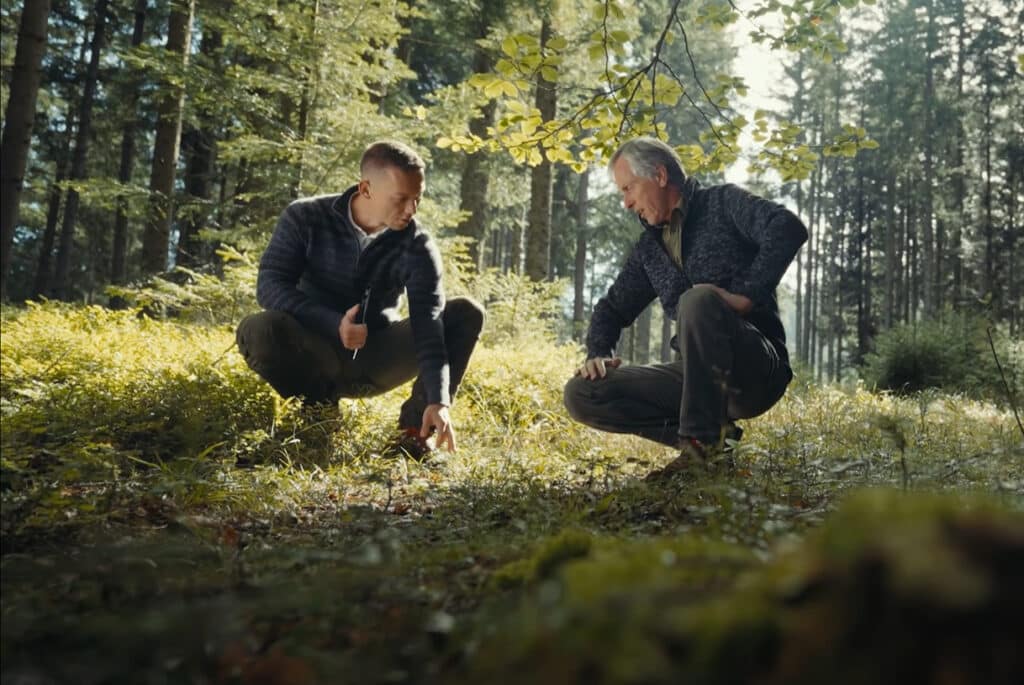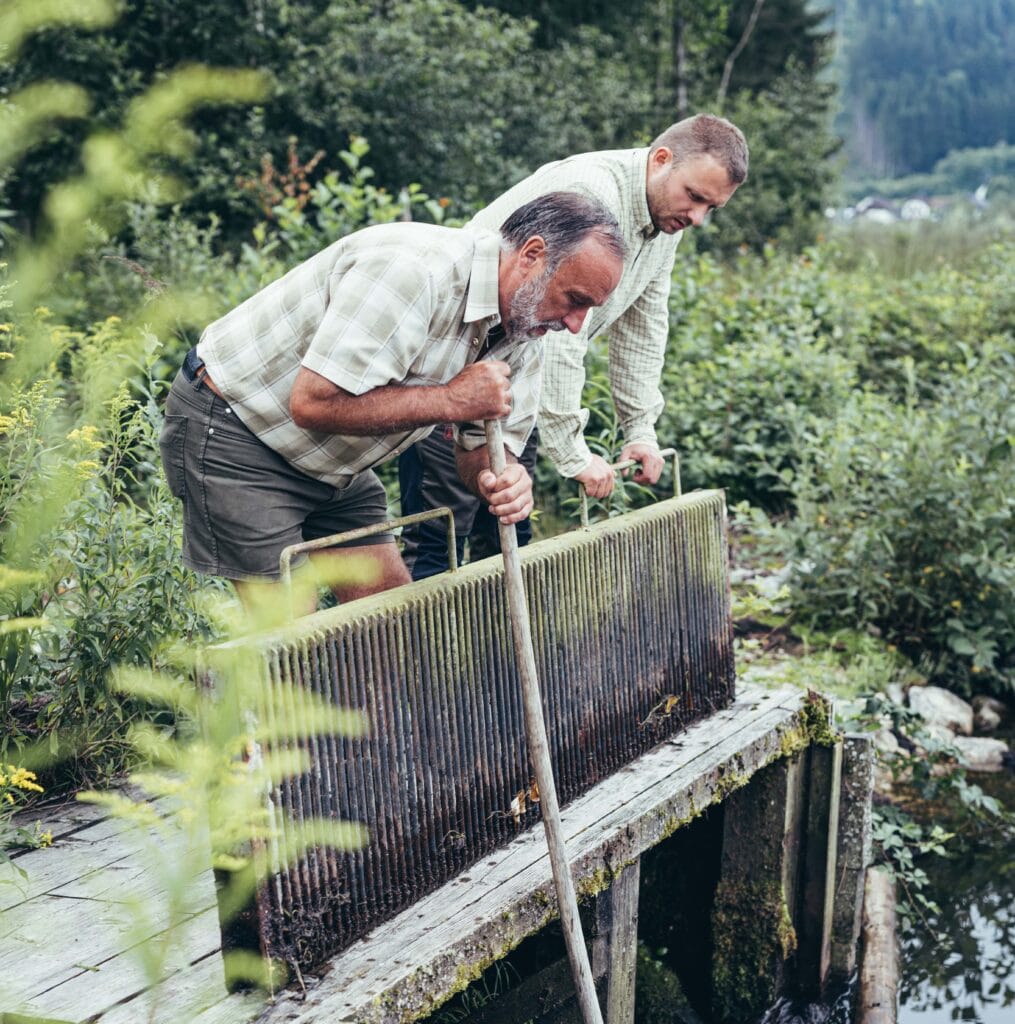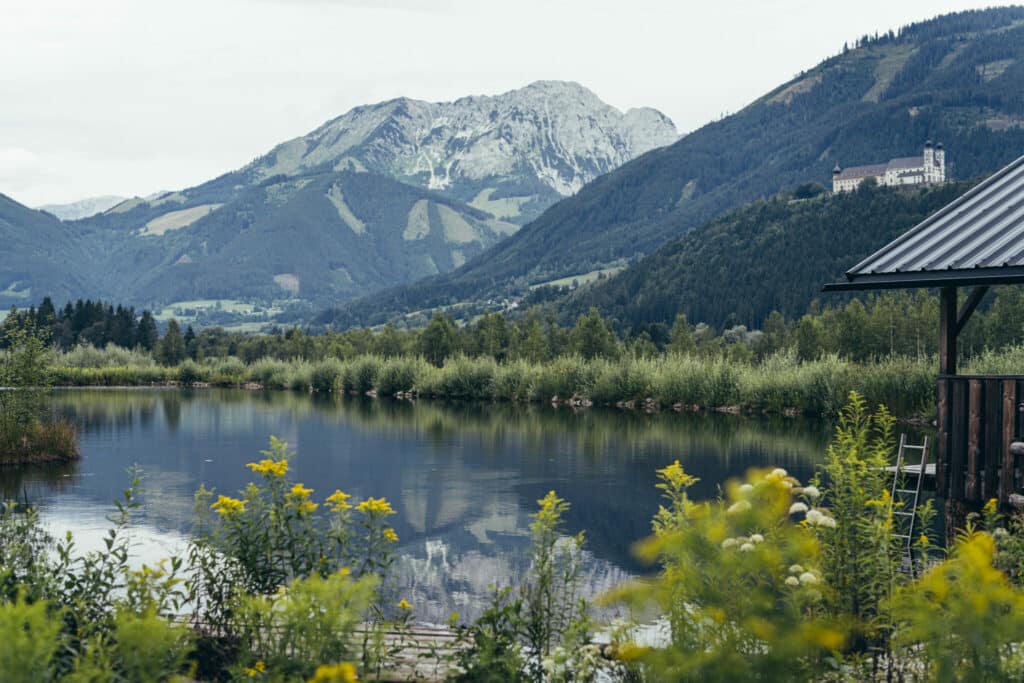Chief Forester DI Karl Jäger
Overall management of forestry and hunting
karl.jaeger@stiftadmont.at +43 (0) 3613/2312-350The forestry operations of the Benedictine Abbey of Admont
25,000 hectares of land, 17,800 hectares of forest, 2 forest administrations, 8 forester districts and numerous hunting grounds, 140 kilometres of fishable watercourses, 70 hectares of ponds and lakes
The Admont and Trieben forestry administrations manage around 25,000 hectares of land owned by the foundation - including an impressive 17,800 hectares of forest. Here, the valuable resource of wood is managed sustainably with responsibility and foresight - in harmony with nature, climate and tradition.
But the Stiftsforst is much more than "just" forestry: hunting, the maintenance of agricultural land, the management of mountain pastures by local farmers and the exercise of fishing rights in clear streams and lakes are also part of a comprehensive, nature-oriented utilisation concept.
A living space. Conscious utilisation. A responsibility for generations.

Contacts & contact persons
Below you will find your contact persons in the forestry operations of the Benedictine Abbey of Admont

The Admont forestry operation is nestled in the imposing mountains of the northern Intermediate Alps - a place where sustainable forestry meets impressive natural landscapes. Directly bordering the Gesäuse National Park to the east and the Upper Austrian Alpine foothills to the north, the operating areas cover 11,500 hectares - from a gentle 650 to an alpine 2,200 metres above sea level.
The terrain is characterised by steep slopes, untouched mountain forests and a unique geology in the transition from limestone and dolomite to slate. The majestic Haller Mauern and the Admonter Kalbling form the impressive backdrop to this cultural landscape.
Spruce, fir and larch trees grow here in a natural way - adapted to the altitude and climate. Around 40,000 cubic metres of wood are harvested every year - carefully, sustainably and with a view to future generations.
Forestry in harmony with nature - for centuries at the Admont site.
Visit us at the Church square 1, 8911 Admontand experience sustainable forest management at the highest level.
From the Paltental valley across the Triebener Tauern to the upper Lavanttal valley, the extensive property of the Trieben Forest Administration - an impressive part of the Benedictine monastery of Admont. On 13,500 hectares, spread over several communities and at altitudes between 700 and 2,450 metres, farming is carried out here with responsibility and foresight.
The variety of rock types - from graphite and quartzite slate to mica gneiss - not only characterises the landscape, but also the character of the forests. Spruce, fir and larch dominate the inter-Alpine region - complemented by majestic Swiss stone pines in the high altitudes of the Rottenmann and Seetal Alps.
Round 45,000 cubic metres of wood are harvested sustainably every year - in close harmony with nature and its dynamics. This creates a living habitat that not only provides valuable resources, but is also preserved for future generations.
Forestry with attitude - in one of the most impressive mountain landscapes in Styria.
Forest administration Trieben: Wolfsgrabenstraße 12, 8784 Trieben
Visits by appointment only.

Contacts & contact persons
Below you will find your contact persons at the Trieben forestry administration
Whether forestry, gardening or day-to-day operations - a well-maintained fleet of vehicles is the backbone of many tasks around the Benedictine Abbey of Admont. To ensure that everything runs smoothly, our Own car workshop for the professional maintenance and servicing of all vehicles and machines.
With technical expertise, precision and a wealth of experience, the workshop team guarantees reliable operational readiness - day after day.
Expertise under the bonnet - for smooth operations at the foundation.
Head of the workshop: Thomas Fahrnberger

Admont Benedictine Abbey has the right to fish in numerous rivers, streams, ponds and lakes in Upper Styria. Available fishing waters are leased by the forestry enterprise directly or are offered on the platform www.hejfish.com We are happy to receive reservations and enquiries at any time.


The entire estate of Admont Abbey encompasses around 25,000 hectares. The land transactions department is responsible for managing the plots, as well as for processing and archiving transactions.
Head of land transactions: Alfred Fuchs